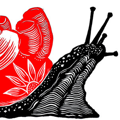How multiple axes of oppression work together to marginalize black women
5 stars
No one group is safe from bell hooks' substantial critique in her in-depth exploration of the oppression black women have to struggle against in the United States.
This book contains several essays, which deal with black women's struggle from the time of slavery to the time of publishing (1981). In them the author shows how time and again black women have been marginalized or excluded not only from patriarchal mainstream society, but also from white feminism and black liberation movements.
Nearly a decade before the term intersectionality was coined, bell hooks describes how the multiple axes of oppression black women have been struggling against work in tandem to silence, exclude, and marginalize groups of people; how liberation movements are split along lines of gender and race and ultimately loose their radicalness and strength while granting some of its leaders entry to the white patriarchal hierarchy.
If you're in any way …
No one group is safe from bell hooks' substantial critique in her in-depth exploration of the oppression black women have to struggle against in the United States.
This book contains several essays, which deal with black women's struggle from the time of slavery to the time of publishing (1981). In them the author shows how time and again black women have been marginalized or excluded not only from patriarchal mainstream society, but also from white feminism and black liberation movements.
Nearly a decade before the term intersectionality was coined, bell hooks describes how the multiple axes of oppression black women have been struggling against work in tandem to silence, exclude, and marginalize groups of people; how liberation movements are split along lines of gender and race and ultimately loose their radicalness and strength while granting some of its leaders entry to the white patriarchal hierarchy.
If you're in any way interested about liberation, I highly recommend reading "Ain't I A Woman". It is not very long (less than 200 pg) and not academic, but shows clearly the multiple lines of oppression working in tandem in Western capitalist society.

